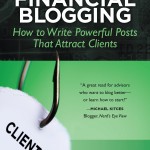Can YOU simplify investment commentary better than this?
I am not perfect. I don’t have all of the answers for how to best simplify the complex sentences that abound in investment commentary and related publications. However, we would all benefit if the smart investment professionals could communicate more clearly and economically.
To spur conversation, I’m posting some before-and-after versions of sentences inspired by what I’ve read in online and printed investment pieces. Most of my tweaks are minor. They don’t dramatically ratchet up the sentences’ effectiveness. However, their simplicity means that they demonstrate techniques that would be easy for anyone to implement.
If you’re trying to improve your writing skills, I hope you’ll find some inspiration. If you’re a veteran writer or editor, perhaps you can suggest better alternatives.
Investment writing before-and-after examples
Example 1
Before: An important point to make is that rising interest rates do not necessarily have a negative impact for bond investors as often perceived.
After: Contrary to what many think, rising interest rates don’t necessarily hurt bond investors.
Note: “Show, don’t tell” is standard writing advice. Instead of saying that something is important, convey its significance simply and quickly.
Example 2
Before: What are the things that matter most to members of the portfolio management team?
After: What matters most to the portfolio management team?
Note: Deleting unnecessary words makes it easier for readers to grasp your message. The “after” version might be simplified further to “What matters most to the portfolio managers?” or even, depending on context, “What matters most to the portfolio?”
Example 3
Before: The Fed’s statement will be illustrative in highlighting the Fed’s future plans.
After: The Fed’s statement will highlight its plans.
Note: This is one of several examples showing how replacing forms of the verb “to be” strengthens your sentences. Also, “illustrative” and “future” aren’t necessary in this sentence. Readers grasp them from the context.
Example 4
Before: Bank of America has a sound capital position and a management team that is well-regarded.
After: Bank of America has a sound capital position and a well regarded management team.
Note: Converting phrases such as “that is well regarded” into adjectives can streamline your sentences. Just don’t pile up too many adjectives in a row. You’ll overwhelm your readers. Some adjectives are valuable. However, I like what Mark Twain said about them: “When you catch an adjective, kill it. No, I don’t mean utterly, but kill most of them—then the rest will be valuable. They weaken when they are close together. They give strength when they are far apart.”
Example 5
Before: One third of S&P 500 earnings are derived from foreign sales.
After: One-third of S&P 500 earnings come from foreign sales.
Note: This is another example of how you can streamline sentences by eliminating forms of “to be.”
Example 6
Before: Our current expectation is that foreign bond buying will prevent longer-term rates from increasing significantly in 2015.
After: We expect that longer-term rates will not increase significantly in 2015, due to foreign bond buying.
Note: Using “I” or “we” will enliven “to be” phrases like the “before” version of this sentence. I also suggest that you put the most important part of your sentence in the beginning. I thought the writer’s interest rate expectations were more important than the foreign bond buying.
Example 7
Before: This technique improved returns without a dramatic increase in risk.
After: This technique improved returns without dramatically increasing risk.
Note: Verbs are more powerful than nouns.
Your thoughts?
I welcome your thoughts about how to improve these sample sentences or how to improve investment-related writing in general. Please comment.
Update on July 2, 2015: Oops, I edited the title of this post after realizing that it violated a traditional grammar rule favoring “Can you simplify investment commentary better than I” instead of “than me.” Garner’s American Usage says “I” is the traditional right answer, but “me” is okay for a deliberately relaxed, colloquial tone. After sharing this topic with friends, I changed the title because I realized that passions run high on this issue. By the way, I realized that I’ve been caught on this issue before, as you’ll see if you read “Are you as compulsive as me or I?”
Image courtesy of thaikrit at FreeDigitalPhotos.net





Thanks Susan for your great suggestion and examples., I will definitely be watching how I write in the future to make sure I have simplified where possible.
I always enjoy your posts!
Hello, Susan
A very Merry Christmas, Happy Holidays and Happy, Healthy New Year!
I always enjoy your comments and thoughts.
Thanks to my “cover letters”, I was fortunate to enter into the financial services industry as an English Major from NC State University in the early 80’s. I’m still in the industry and realize, more than ever, the importance of clarity, candor and simplicity in writing.
You’re keeping a “lost art” alive.
Nan Strader
Nan,
Thank you very much for your support and have a great year in 2016!